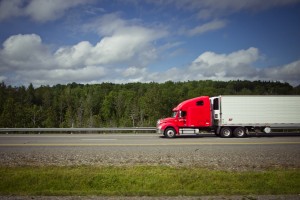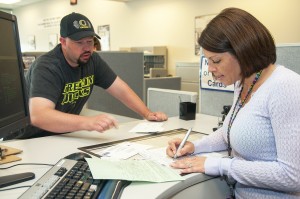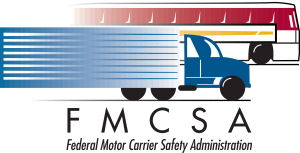How To Start A Trucking Company
Why SemiDispatch is the perfect dispatch software for your trucking company
November 20, 2021SemiDispatch will be at the Mid-America Trucking Show
November 20, 2021o you’ve decided to get into the world of trucking. Maybe you’re a company driver or an owner-operator and you want to start your own trucking company. That’s exciting news! But, there are quite a few things you must do before you hit the road. This post will outline the necessary steps needed in order for you to start truckin’. We have also provided links to online applications and resources in this article as well to save you hours of Googling! Follow these steps and you’ll be on the road in no time.
Start a Trucking Company
What kind of trucking company do you want to run?
When starting out it’s best to decide on one type of trucking company you want to operate. The most common type of trucking company operates dry van trailers that haul general freight. These types of loads are in demand and you shouldn’t have much trouble finding work. Other types of loads you can haul include temperature controlled loads (reefers), building materials (flat beds), or bulk loads (liquids such as dairy products or gasoline). While there are many other types of loads to haul, these are the most common.
Secondly, you will want to decide where you will travel. Most trucking companies operate and haul freight within the 48 states, but some decide to only do regional hauls such as, mid west, west coast, or the south east. There is no right or wrong choice here, so pick something that works best for you.
Registering your trucking company

First of all, you’ll need to register your business with your state. You can register as a sole proprietor, limited liabilty corporation (LLC), partnership, or a corporation. Again, there’s no right choice of business formation, but most companies decide to operate as either an LLC or a corporation. Be sure to check out your state’s regulations on forming your trucking company. Once you’ve formed your company, you’ll need to register for an Employer Identification Number (EIN) with the IRS. EINs are issued by the IRS and you will need to provide it to most (if not all) of the brokers and customers you work with. Whether you have employees or not, EIN numbers are needed to file taxes for your business.
IRS EIN online application: http://www.irs.gov/Businesses/Small-Businesses-&-Self-Employed/Apply-for-an-Employer-Identification-Number-(EIN)-Online
Once you’ve completed the business registration, you will also need to register with the US Department of Transportation (DOT) and the Federal Motor Carrier Safety Administration (FMCSA). Before you can get your operating authority from the FMCSA, you will need to obtain a DOT number first. DOT application will require you to specify what type of business (motor carrier), operation (for hire or public), what you want to transport and where you will transport it. The online application is very easy to follow and you can register within minutes. Once the application is complete, your trucking company will get a DOT and an MC number.
Important note: All new carriers are subject to the new entrant program. The DOT will audit your trucking company within the first 18 months of operation to ensure that you are operating safely and maintaining import
ant records. It is crucial that you keep records such as log books, driver records, drug testing results, maintenace records, and more from day one. SemiDispatch can help you keep track of all of your loads, driver records, and truck records so that you can efficiently operate your trucking company and maintain safe operations. For a list of features that SemiDispatch offers, please click here to view our features page. Enough of the shameless plug, let’s move on!
USDOT application: https://li-public.fmcsa.dot.gov/LIVIEW/pkg_registration.prc_option
New entrant program information: http://www.fmcsa.dot.gov/safety/new-entrant-safety-assurance-program
BOC-3 Filing (Process Agent)
A BOC-3 filing is a federal filing that designates legal agents upon which process may be served. It is required for you to have a process agent in each state that you operate. There are many, many companies that offer this service, usually for around $30. You can find multiple companies online by simpling searching for BOC-3 filing. The company that does this for you will file the necessary paperwork to the FMCSA. You cannot get your operating authority without this. Also, it’s important to keep a physical copy of your BOC-3 filing as you will need it for your safety audit.
IRP, IFTA, and UCR
IRP stands for International Registration Plan and is basically a truck registration and license plate system. To register your truck you’ll need to go through your state agency, such as a secretary of state. When you register your trucks you’ll need to state which jurisdictions (states/provinces) you want to travel through and pay fees based on those jurisdictions’ rates. For more information about IRP and to find how to register in your state, visit: http://www.irponline.org/
IFTA stands for International Fuel Tax Agreement and is used for reporting fuel use and paying fuel taxes. Again, you will need to register for an IFTA license through your state’s agency. Once you’re registered you’ll receive a decal for each truck you own. Throughout each quarter you need to keep track of miles driven in each state as well as fuel purchased in each state. At the end of each quarter you will file your IFTA miles and fuel with your state agency and pay fuel taxes on those miles. Depending on the amount of miles drive and fuel bought in each state you will either owe or receive a refund. For more information on IFTA visit their webiste at: http://www.iftach.org/
UCR, Unified Carrier Registration, is a system of registering and collecting fees from motor carriers and other companies engaged in interstate travel. Every trucking company needs to annually register with UCR and pay annual dues. To register and find more information on UCR, visit the official website at: http://www.ucr.in.gov/
Trucking Insurance
Before your motor carrier authority can be granted you’ll need to purchase insurance for your trucking company. The FMCSA requires $100,000 cargo and $750,000 auto liability policies. Once you apply for your authority, you’ll be bombarded with calls from insurance agents offering you quotes. Please be sure to shop around and get at least three quotes before choosing your insurance agent. When choosing a policy, it is important to know who the underwriter of the policy is to find out their credit rating. Some brokers and shippers will not hire a motor carrier if their insurance policy is underwritten by a company with a low credit rating.
Find Loads
Once you’ve gone through all the steps above and received your authority, it’s time to find some work! The easiest way for new carriers to find loads is through load boards. Load boards are used by many brokers to post available loads. Most big load boards allow you to post your truck’s location and desired destination so that you can find good matching loads. Load boards also allow carriers to see profiles of brokers posting loads which show their credit rating and general payment patterns. This allows carriers to find brokers who are trustworthy and pay on time.
We hope that this guide was helpful in helping you navigate all the steps to starting your trucking company. If you have any questions or other tips please feel free to post a comment below or send us an e-mail. To see how SemiDispatch can help you manage your trucking company and dispatch operations, visit our features page.

